Maestría en Ciencia de Datos
Analiza datos y desarrolla modelos matemáticos que contribuyan a tomar decisiones en favor de la comunidad
EDNA_FRANCO_WHATS_CTA3
Inicia tu proceso de admisión vía WhatsApp
ESTE_POSGRADO_MCD_CTA2
Este posgrado
Desarrolla modelos matemáticos para proponer soluciones innovadoras, basadas en el análisis de datos, que mejoren la calidad de vida de las personas e impacten de manera positiva en la toma de decisiones en empresas u organizaciones para mejorar su eficacia y competitividad.

Dra. Rocío Carrasco Navarro
Doctora y maestra en Ciencias en Ingeniería Eléctrica por el Centro de Investigación de Estudios Avanzados (Cinvestav) del Instituto Politécnico Nacional, unidad Guadalajara. Ingeniera en Comunicaciones y Electrónica por el Centro Universitario de Ciencias Exactas e Ingenierías (CUCEI) de la Universidad de Guadalajara.
Es integrante del Sistema Nacional de Investigadoras e Investigadores, nivel I.


CUERPO_ACADEMICO_MCD_CTA3
Cuerpo académico
esta maestría
Centras tu formación en la resolución de problemas, el desarrollo de proyectos y el estudio de casos, con un enfoque de aplicación inmediata o próxima.
Te integras a un programa enfocado en la eficiencia de recursos y la sustentabilidad, al tiempo que analizas los dilemas éticos sobre la adquisición y el manejo de información.
Recibes acompañamiento de un cuerpo académico con reconocimiento nacional e internacional y con adscritos al Sistema Nacional de Investigadoras e Investigadores (SNII) del Conahcyt.
subtitulo 01
parrafo 01
subtitulo 02
parrafo 02
Este posgrado es para ti
- Con competencias en programación de sistemas computacionales y que deseen adquirir competencias y habilidades en métodos matemáticos y estadísticos para el análisis de datos.
- Con interés por generar información estadística que influya en la toma de decisiones a favor de la sociedad, en específico con orientación a la industria, energías, medio ambiente o indicadores sociales.
- Que buscan analizar cuantitativamente lo que sucede y quieren encontrar las razones que explican los problemas o procesos.
- Con interés en solucionar problemas, eficientar los procesos, visualizar escenarios posibles de enfrentar, así como identificar y cuantificar los factores que afectan positiva o negativamente a las organizaciones y proyectos.
- Que hayan cursado una licenciatura relacionada con ingenierías, economía, finanzas, administración y ciencias matemáticas y naturales, con competencias y habilidades en matemáticas, estadística y desarrollo de algoritmos.
- Crear procesos confiables para la adquisición y el uso de los datos en ambientes donde históricamente su obtención ha sido deficiente o nula.
- Interpretar y tratar eficientemente la información mediante modelos matemáticos que permitan comprender problemas, así como el comportamiento de personas, procesos y actividades en las organizaciones.
- Interpretar datos con base en la formulación de modelos matemáticos para la detección y predicción de patrones e integrar métodos y procedimientos matemáticos con técnicas computacionales modernas para dar sentido a la información en diversos ámbitos del quehacer humano.
- Desarrollar una visión objetiva, analítica y proyectiva de los escenarios probables y con ello plantear las alternativas posibles de solución.
- Estimar el impacto de las decisiones posibles tanto en la sociedad como en la organización.
Campo laboral
- Empresas nacionales e internacionales.
- Áreas de inteligencia de negocios y modelos predictivos.
- Universidades.
- Centros de investigación.
- Instancias de gobierno.
- Organizaciones civiles.
- Crear procesos confiables para la adquisición y el uso de los datos.
- Interpretar y tratar eficientemente la información mediante modelos matemáticos que permitan comprender problemas, así como el comportamiento de personas, procesos y actividades en las organizaciones.
- Interpretar datos con base en la formulación de modelos matemáticos para la detección y predicción de patrones e integrar métodos y procedimientos matemáticos con técnicas computacionales modernas para dar sentido a la información en diversos ámbitos del quehacer humano.
LGAC_TODAS_MCD_BL5
Líneas de Generación y Aplicación del Conocimiento
Definición
Distribución y diseño de arquitecturas de información
Identificación de problemas: clasificación o regresión pronóstico
Desarrollo de modelos con capacidad predictiva
Las Líneas de Generación y Aplicación del Conocimiento (LGAC) son aquellos campos temáticos que caracterizan al programa. En ellas confluyen las trayectorias de investigaciones o de trabajo profesional de profesores y alumnos, desde una perspectiva sistémica de generación de nuevo conocimiento o aplicación, según su naturaleza y enfoque.
Las Líneas de Generación y Aplicación del Conocimiento de este programa de posgrado son:
Desarrollo de arquitecturas de información bajo esquemas matriciales que además reduzcan la dimensionalidad de los datos, conservando la información crítica. Esto implica la identificación de las características de la información, los procesos de limpieza a los que se debe someter y la visualización. Es necesario comprender los fundamentos del modelado matemático mediante la caracterización de la información en modelos iniciales de regresiones y los fundamentos que le permiten simular y realizar sus primeras calibraciones de modelado. Distribución y diseño de arquitecturas de información.
Esta línea se enfoca en la naturaleza del problema y en su identificación como un caso de clasificación o uno de regresión-pronóstico. Paralelamente, deberá comprender que tanto en clasificación como en pronósticos hay diferentes familias de modelos y que el ajuste de estos estos a los datos es un proceso de optimización.
Desarrollo de competencias para la creación de modelos con mayor capacidad predictiva, como aproximadores universales y mapeos no lineales. Para complementar la formación, se sugiere analizar los modelos basados en el enfoque Bayesiano.
Líneas de Generación y Aplicación del Conocimiento
Las Líneas de Generación y Aplicación del Conocimiento (LGAC) son aquellos campos temáticos que caracterizan al programa. En ellas confluyen las trayectorias de investigaciones o de trabajo profesional de profesores y alumnos, desde una perspectiva sistémica de generación de nuevo conocimiento o aplicación, según su naturaleza y enfoque.
Las Líneas de Generación y Aplicación del Conocimiento de este programa de posgrado son:
Desarrollo de arquitecturas de información bajo esquemas matriciales que además reduzcan la dimensionalidad de los datos, conservando la información crítica. Esto implica la identificación de las características de la información, los procesos de limpieza a los que se debe someter y la visualización. Es necesario comprender los fundamentos del modelado matemático mediante la caracterización de la información en modelos iniciales de regresiones y los fundamentos que le permiten simular y realizar sus primeras calibraciones de modelado. Distribución y diseño de arquitecturas de información.
Esta línea se enfoca en la naturaleza del problema y en su identificación como un caso de clasificación o uno de regresión-pronóstico. Paralelamente, deberá comprender que tanto en clasificación como en pronósticos hay diferentes familias de modelos y que el ajuste de estos estos a los datos es un proceso de optimización.
Desarrollo de competencias para la creación de modelos con mayor capacidad predictiva, como aproximadores universales y mapeos no lineales. Para complementar la formación, se sugiere analizar los modelos basados en el enfoque Bayesiano.
PLAN_ESTUDIOS_MAESTRIA_CIENCIA_DATOS_CTA
Plan de estudios
EXPERIENCIA_POSGRADO_BT1

ITESO’s graduate programs are supported by a renowned academic faculty comprising leading experts in their fields, who are actively engaged in real-world projects that offer concrete solutions. The university boasts over 100 researchers, 79 of whom are affiliated with Mexico’s National System of Researchers (SNII). Some are also members of the Mexican Academy of Sciences.
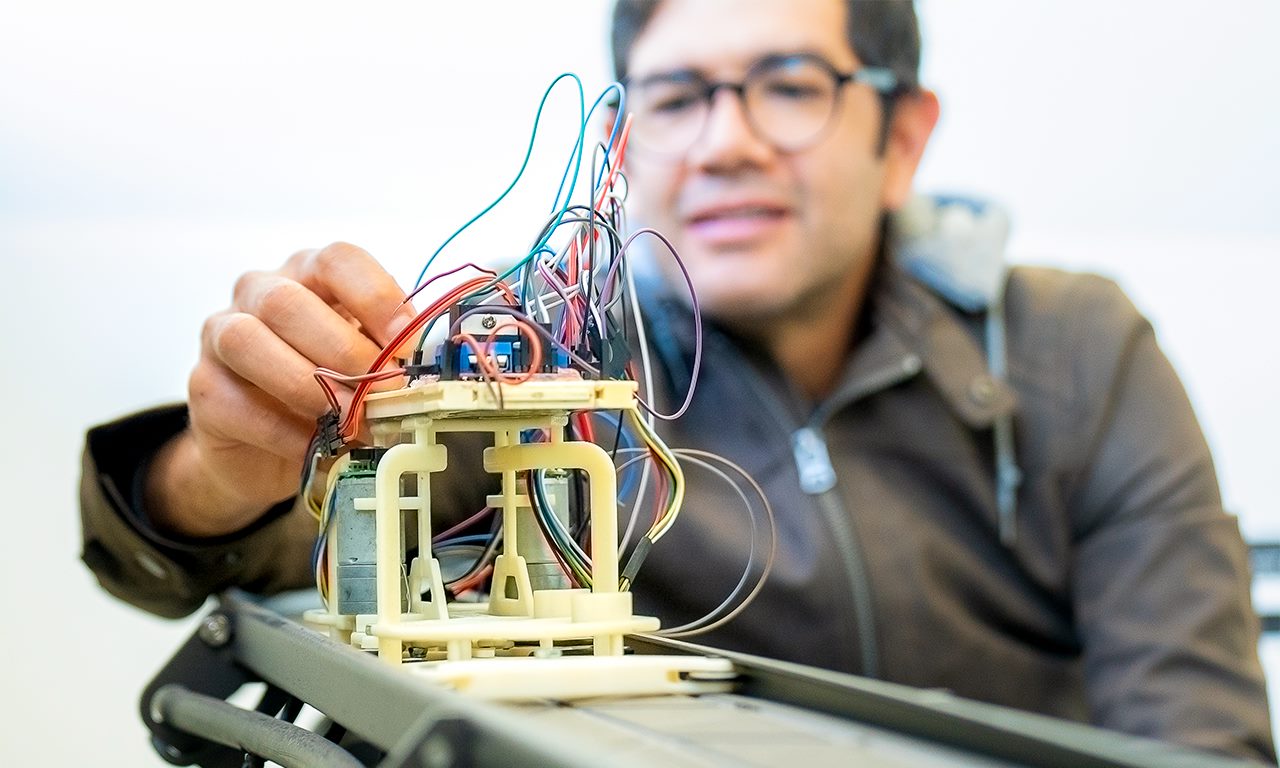
Research at ITESO generates new, rigorous, and relevant knowledge focused on some of the region’s and country’s most pressing challenges. Areas of impact include human rights, access to justice, renewable energy, sustainable resource management, food security, mental health and well-being, quality education, data science, and public communication, among others. These programs aim to offer development alternatives, influence public policy, foster technological innovation, and promote socially impactful projects.

One of the key advantages of ITESO’s graduate programs is the opportunity for international academic exchange through alliances with the International Association of Jesuit Universities (IAJU), a global network of over 320 institutions. Additionally, programs supported by Conacyt offer research stays in Mexico and abroad for fieldwork, study, or the completion of research projects.

Sustainability is an institutional priority that drives research, education, and community engagement projects at ITESO. These initiatives aim to develop comprehensive, long-term strategies for ecosystem stewardship that are in harmony with local communities. ITESO’s campus is one of the most sustainable in the country, and among the few in the world with a protected forest on its grounds.
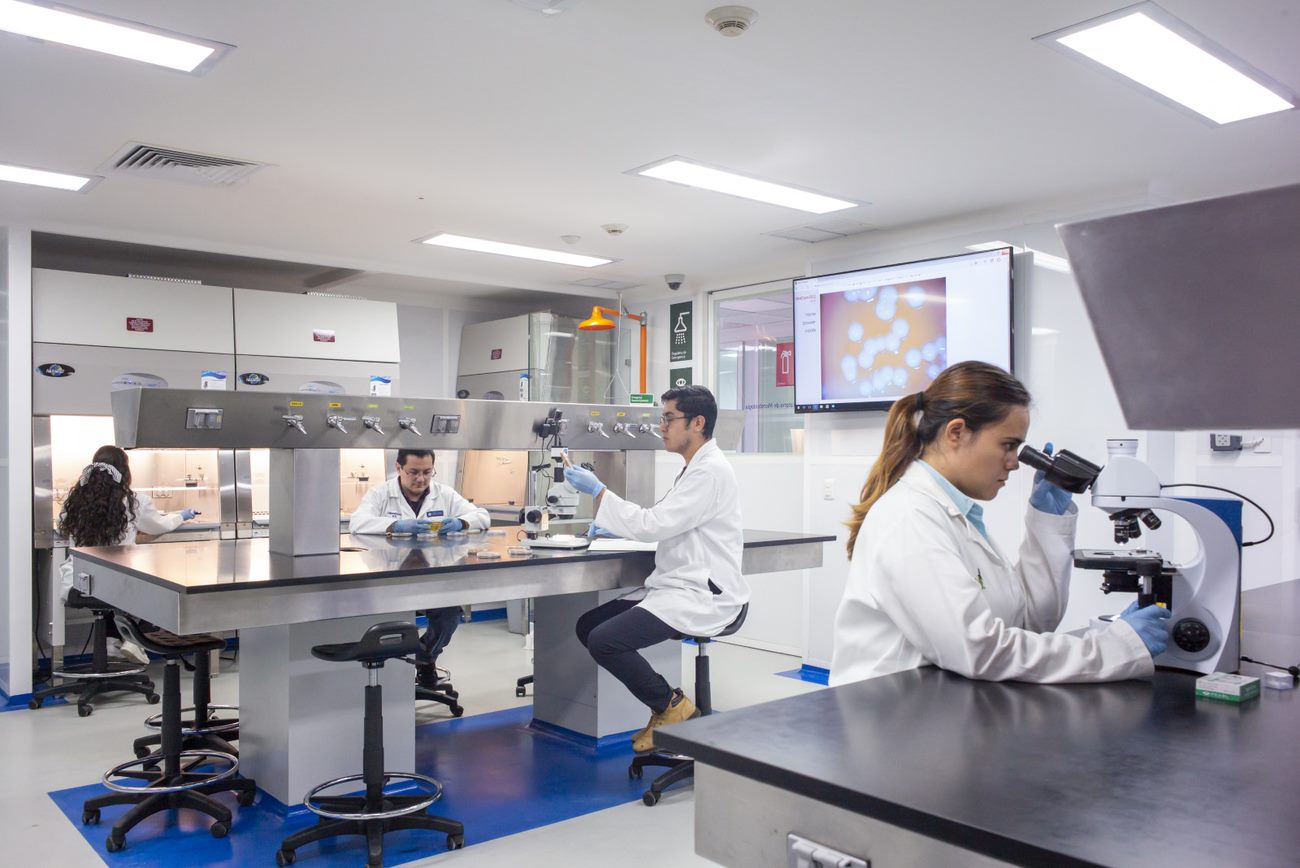
ITESO offers access to more than 100 specialized laboratories in areas such as nanotechnology, data science, food engineering, mechatronics, biotechnology, chemistry, systems, communication, multimedia, languages, nutrition, neuromarketing, arts, building technologies, and more. Facilities also include simulated courtrooms, exhibition spaces, mediation rooms, and audiovisual projection labs.
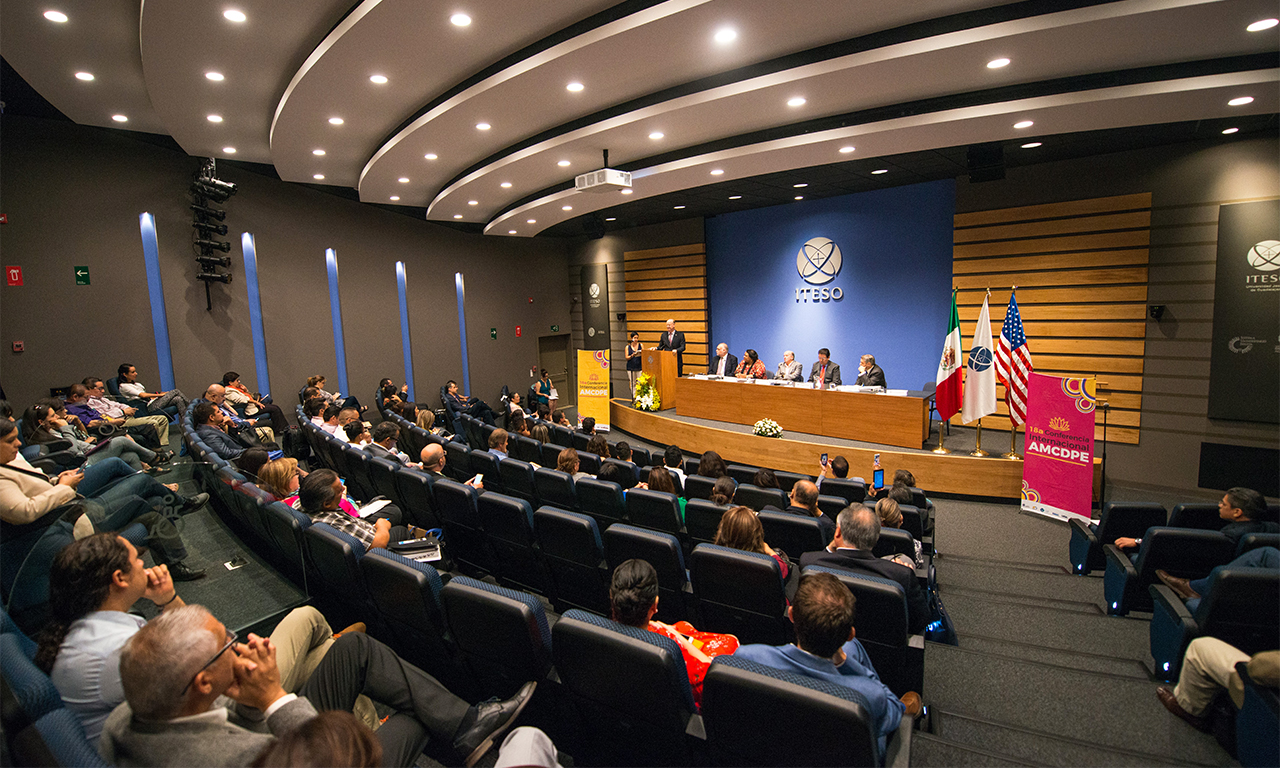
ITESO’s endowed chairs foster dialogue, critical thinking, and the exchange of ideas across sectors. They provide spaces for collaboration between academia, industry, and civil society, aimed at generating knowledge with high social impact. These initiatives also strengthen academic networks and support faculty and student mobility.
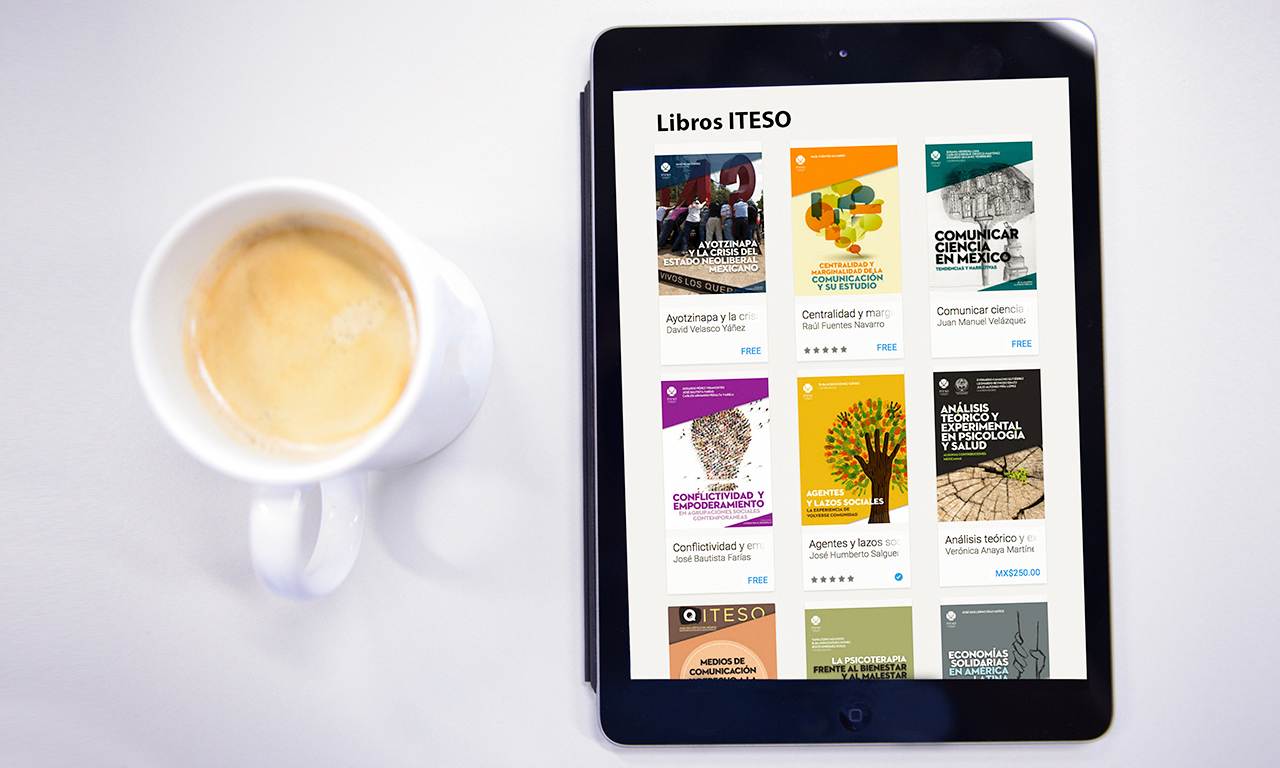
With more than 80 active academic journals and a robust catalogue of books, ITESO leads private universities in the region in scholarly publishing. Publications cover diverse disciplines, promote interdisciplinary collaboration, and are widely accessible—many available for free download online.

ITESO holds the most significant number of industry collaboration agreements among private universities in western Mexico. The university also offers dual-degree programs with institutions such as the University of Koblenz (Germany), Boston College, and Central Michigan University (USA).
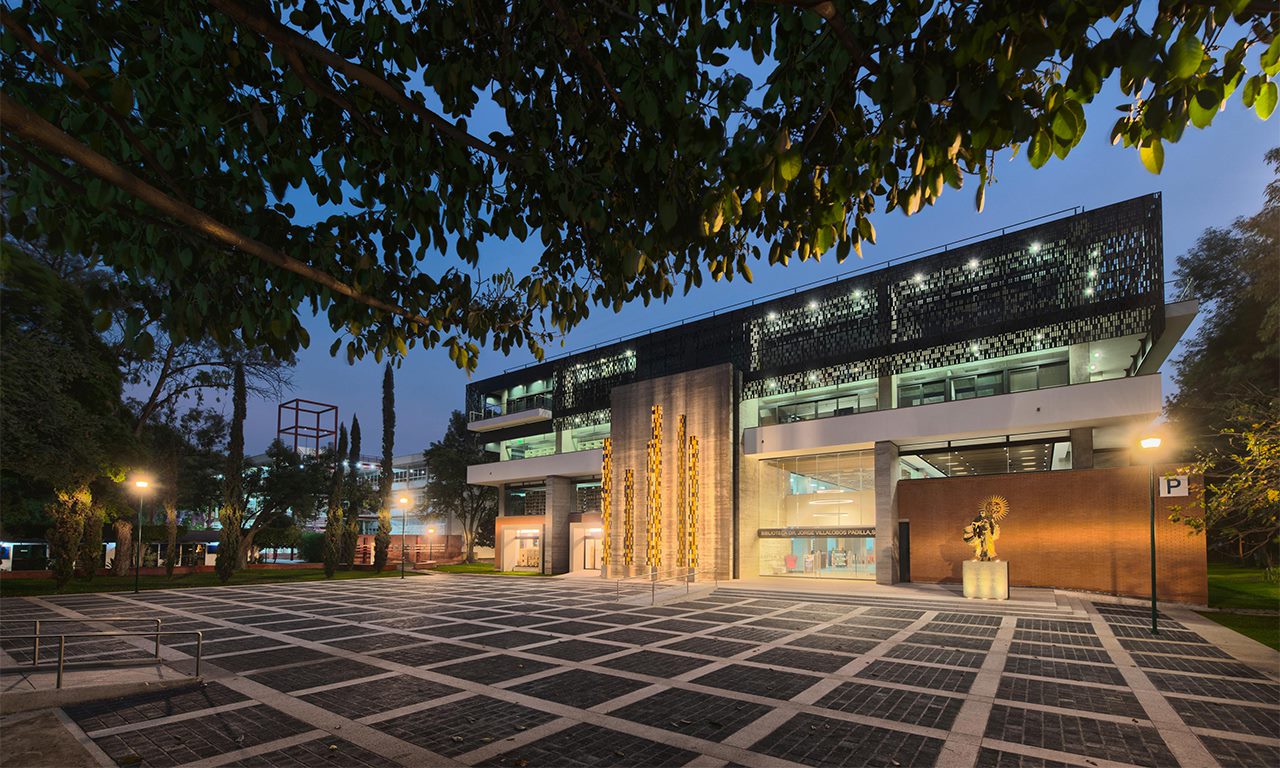
ITESO’s library houses more than 640,000 physical volumes and 200,000 digital resources, including books, journals, blueprints, films, and a collection of rare and antique books. Open to the public, the library features reading rooms, exhibition spaces, a cinema, an agora, a material library, and collaborative workspaces.

ITESO offers expert consulting and support for businesses at all stages of development through the Center for Innovation and Technology Management, the High-Impact Social Innovation Center, and the University-Business Center. Graduate students engage in projects focused on entrepreneurship, innovation, business acceleration, solidarity economies, and fair trade alternatives.
Distinguished faculty
Research programs
Academic mobility
Sustainability
Computer systems
Endowed chairs
Publications
Partnerships
Library
Business & Entrepreneurship
ITESO’s graduate programs are supported by a renowned academic faculty comprising leading experts in their fields, who are actively engaged in real-world projects that offer concrete solutions. The university boasts over 100 researchers, 79 of whom are affiliated with Mexico’s National System of Researchers (SNII). Some are also members of the Mexican Academy of Sciences.
Research at ITESO generates new, rigorous, and relevant knowledge focused on some of the region’s and country’s most pressing challenges. Areas of impact include human rights, access to justice, renewable energy, sustainable resource management, food security, mental health and well-being, quality education, data science, and public communication, among others. These programs aim to offer development alternatives, influence public policy, foster technological innovation, and promote socially impactful projects.
One of the key advantages of ITESO’s graduate programs is the opportunity for international academic exchange through alliances with the International Association of Jesuit Universities (IAJU), a global network of over 320 institutions. Additionally, programs supported by Conacyt offer research stays in Mexico and abroad for fieldwork, study, or the completion of research projects.
Sustainability is an institutional priority that drives research, education, and community engagement projects at ITESO. These initiatives aim to develop comprehensive, long-term strategies for ecosystem stewardship that are in harmony with local communities. ITESO’s campus is one of the most sustainable in the country, and among the few in the world with a protected forest on its grounds.
ITESO offers access to more than 100 specialized laboratories in areas such as nanotechnology, data science, food engineering, mechatronics, biotechnology, chemistry, systems, communication, multimedia, languages, nutrition, neuromarketing, arts, building technologies, and more. Facilities also include simulated courtrooms, exhibition spaces, mediation rooms, and audiovisual projection labs.
ITESO’s endowed chairs foster dialogue, critical thinking, and the exchange of ideas across sectors. They provide spaces for collaboration between academia, industry, and civil society, aimed at generating knowledge with high social impact. These initiatives also strengthen academic networks and support faculty and student mobility.
With more than 80 active academic journals and a robust catalogue of books, ITESO leads private universities in the region in scholarly publishing. Publications cover diverse disciplines, promote interdisciplinary collaboration, and are widely accessible—many available for free download online.
ITESO holds the most significant number of industry collaboration agreements among private universities in western Mexico. The university also offers dual-degree programs with institutions such as the University of Koblenz (Germany), Boston College, and Central Michigan University (USA).
ITESO’s library houses more than 640,000 physical volumes and 200,000 digital resources, including books, journals, blueprints, films, and a collection of rare and antique books. Open to the public, the library features reading rooms, exhibition spaces, a cinema, an agora, a material library, and collaborative workspaces.
ITESO offers expert consulting and support for businesses at all stages of development through the Center for Innovation and Technology Management, the High-Impact Social Innovation Center, and the University-Business Center. Graduate students engage in projects focused on entrepreneurship, innovation, business acceleration, solidarity economies, and fair trade alternatives.
INVESTIGACION_ITESO_GENERALES_POSGRADOS_TESTIMONIO
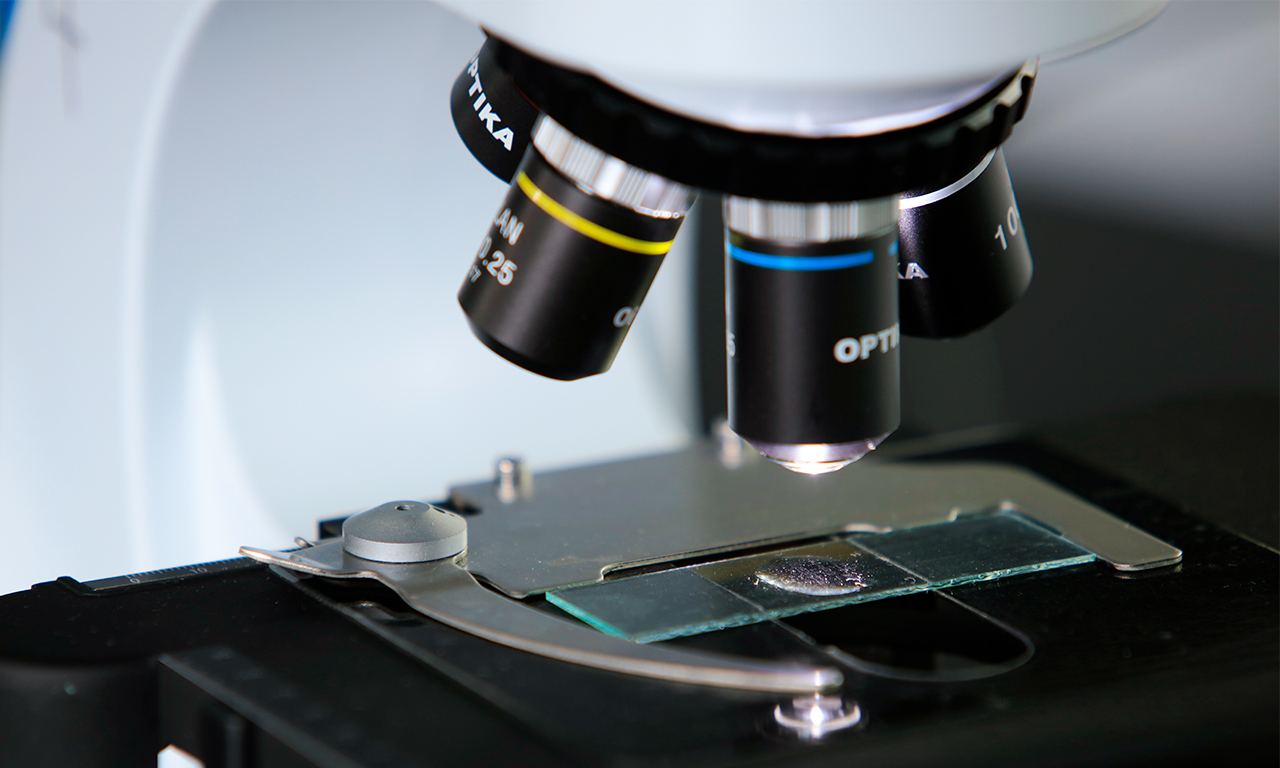
Research at ITESO
“Universities are called to be places of possibilities — to open horizons through research and engagement”.
Arturo Sosa, SJ
ACTIVIDADES_MCD_BC6
Noticias
Asset Publisher
OTROS_POSGRADOS_TITULO_GENERALES_POSGRADOS_BL3
Other graduate programs you may be interested in


